ETF vs Stocks: Which is Better for Investors in 2025
By CapitalKeeper | Beginner’s Guide | Indian Equities | Market Moves That Matter
ETF vs Stocks: Which is Better for Investors in 2025?
The world of investing is vast, and two of the most popular choices for wealth creation are Exchange-Traded Funds (ETFs) and individual stocks. Both offer unique benefits and risks, but as an investor, the decision comes down to your goals, risk appetite, and time horizon.
With Indian markets expanding rapidly, foreign inflows rising, and investors exploring new-age options like ETFs, the debate of ETF vs Stocks is more relevant than ever in 2025. Let’s dive into the differences, pros, cons, and how to choose the right one for your portfolio.
📌 What is an ETF?
An Exchange-Traded Fund (ETF) is a pooled investment vehicle that tracks an index, sector, commodity, or a basket of assets. It trades like a stock on the exchange but provides diversification similar to a mutual fund.
- Example: Nifty 50 ETF includes 50 of India’s top companies.
- How It Works: When you buy 1 unit of an ETF, you’re indirectly buying exposure to all the companies within that fund.
Advantages of ETFs:
✅ Diversification across multiple stocks.
✅ Lower expense ratios compared to mutual funds.
✅ Easy liquidity — bought and sold like a stock.
✅ Suitable for both beginners and professionals.
📌 What are Stocks?
Stocks represent direct ownership in a company. When you buy Reliance, HDFC Bank, or Infosys stock, you become a shareholder. Your returns depend on the company’s performance, stock price appreciation, and dividends.
Advantages of Stocks:
✅ High potential returns from winning companies.
✅ Direct ownership and voting rights.
✅ Opportunity for both short-term trading and long-term compounding.
✅ Ability to hand-pick sectors and businesses.
📊 ETF vs Stocks: Key Differences
| Feature | ETFs | Stocks |
|---|---|---|
| Diversification | High (basket of stocks) | Low (depends on company chosen) |
| Risk | Lower (spread out across assets) | Higher (company-specific risks) |
| Returns | Steady, market-linked | Can be very high or very low |
| Liquidity | High, trades like stocks | High, but depends on the company |
| Management | Passive (index tracking) | Active (you choose & manage) |
| Volatility | Lower | Higher |
| Best For | Beginners, risk-averse, long-term | Experienced investors, risk-takers |
📈 Current Market Context in 2025
In 2025, Indian markets are seeing record inflows into ETFs thanks to increasing awareness, low costs, and ease of investing. Products like Nifty 50 ETF, Bank Nifty ETF, and Gold ETF are gaining traction among retail investors.
At the same time, stocks continue to attract traders and high-risk investors, especially in sectors like:
- Defence & Aerospace 🚀
- Green Energy & EV 🔋
- Pharma & Diagnostics 💊
- Infra & Smart Cities 🏗️
This creates a balanced ecosystem where ETFs act as a stable foundation, while stocks provide the alpha (excess returns) if chosen wisely.
📌 Pros and Cons of ETFs
✅ Pros:
- Diversification with one purchase.
- Lower risk compared to individual stocks.
- Ideal for SIP (systematic investment) in equity markets.
- Transparent and cost-efficient.
⚠️ Cons:
- Limited potential for extraordinary gains.
- Returns mirror the index — no outperformance.
- Not all ETFs have high liquidity in India.
📌 Pros and Cons of Stocks
✅ Pros:
- Potential for multibagger returns (e.g., stocks like Tata Elxsi, Dixon Tech).
- Full control over stock selection.
- Flexibility to trade actively.
- Dividends and long-term compounding benefits.
⚠️ Cons:
- Requires time, research, and discipline.
- Higher volatility.
- Risk of capital erosion if stock underperforms.
- Emotional biases may affect decision-making.
📌 Which is Better for You in 2025?
The choice between ETF vs Stocks depends on your profile:
- Beginners / Passive Investors: ETFs are better since they provide stability, diversification, and steady long-term growth.
- Active Traders / Stock Pickers: Stocks are ideal if you can research, analyze, and handle volatility.
- Balanced Approach: Many investors in 2025 combine both — using ETFs as the core portfolio and stocks for satellite exposure (to capture higher growth).
📌 Practical Example
Let’s say you have ₹10 lakh to invest in 2025:
- Core (70% in ETFs):
- Nifty 50 ETF (₹4 lakh)
- Bank Nifty ETF (₹2 lakh)
- Gold ETF (₹1 lakh)
- Satellite (30% in Stocks):
- Defence & Aerospace stocks (₹1 lakh)
- EV & Green Energy (₹1 lakh)
- Pharma (₹1 lakh)
This way, your core provides safety and steady growth, while your stock picks offer higher potential returns.
📌 Final Verdict
In the ETF vs Stocks battle, there is no one-size-fits-all answer.
- If you want stability, diversification, and ease, go for ETFs.
- If you want control, high returns, and can tolerate volatility, go for stocks.
- For most investors in 2025, a mix of ETFs and selected stocks is the winning formula.
🔑 Key Takeaways
- ETFs = safer, diversified, and beginner-friendly.
- Stocks = higher risk, higher reward, requires research.
- In 2025, India’s growing ETF market gives investors more low-cost options than ever before.
- The smartest strategy? Use ETFs as your portfolio base and stocks for wealth acceleration.
✅ ETF vs Stocks isn’t a choice of either-or — it’s about blending both to achieve your financial goals in 2025.
📌 For daily trade setups, technical learning, and smart investing tips, stay tuned to CapitalKeeper.in
📌 For more real-time updates, trade setups, and investment insights — follow us on [Telegram] and [WhatsApp Channel] subscribe to our newsletter!

Subscribe Now , Join Telegram the Crypto Capital Club, Get Free Crypto Updates
📌 Disclaimer
The content provided on CapitalKeeper.in is for informational and educational purposes only and does not constitute investment, trading, or financial advice. While we strive to present accurate and up-to-date market data and analysis, we make no warranties or representations regarding the completeness, reliability, or accuracy of the information.
Stock market investments are subject to market risks, and readers/investors are advised to conduct their own due diligence or consult a SEBI-registered financial advisor before making any investment decisions. CapitalKeeper and its authors are not liable for any loss or damage, direct or indirect, arising from the use of this information.
All views and opinions expressed are personal and do not reflect the official policy or position of any agency or organization. Past performance is not indicative of future results.By using this website, you agree to the terms of this disclaimer.
Ranjit Sahoo
Founder & Chief Editor – CapitalKeeper.in
Ranjit Sahoo is the visionary behind CapitalKeeper.in, a leading platform for real-time market insights, technical analysis, and investment strategies. With a strong focus on Nifty, Bank Nifty, sector trends, and commodities, she delivers in-depth research that helps traders and investors make informed decisions.
Passionate about financial literacy, Ranjit blends technical precision with market storytelling, ensuring even complex concepts are accessible to readers of all levels. Her work covers pre-market analysis, intraday strategies, thematic investing, and long-term portfolio trends.
When he’s not decoding charts, Ranjit enjoys exploring coastal getaways and keeping an eye on emerging business themes.
📌 Follow Ranjit on:
LinkedIn | Twitter/X | Instagram | ✉️ contact@capitalkeeper.in


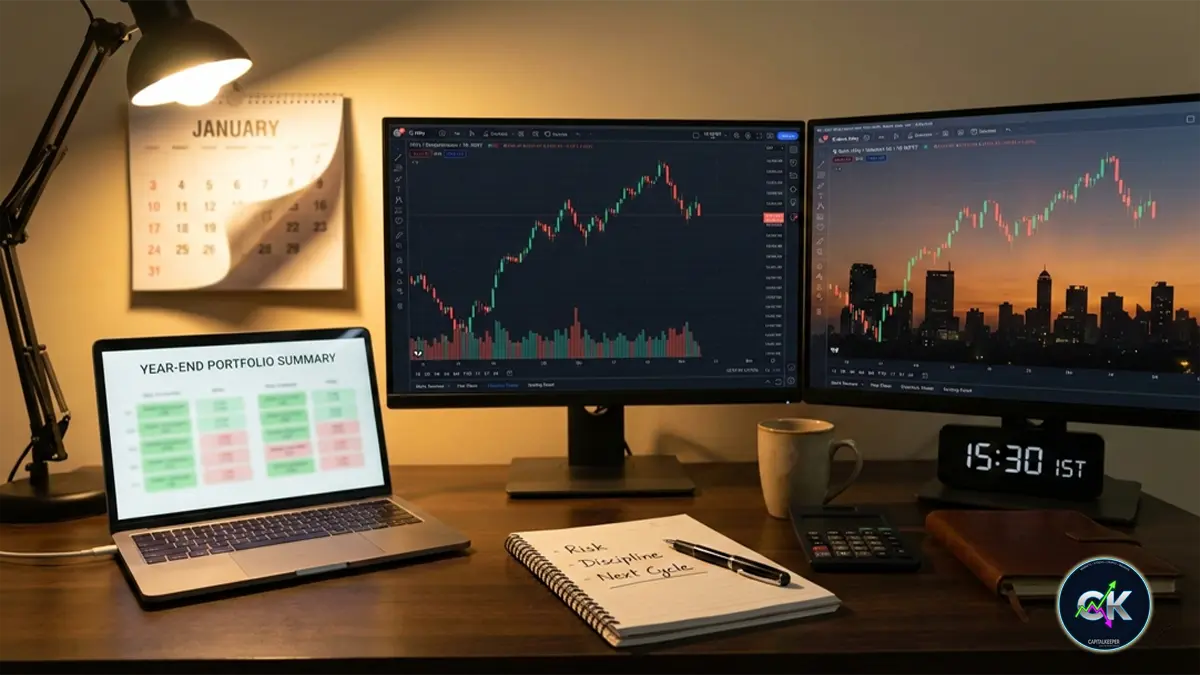

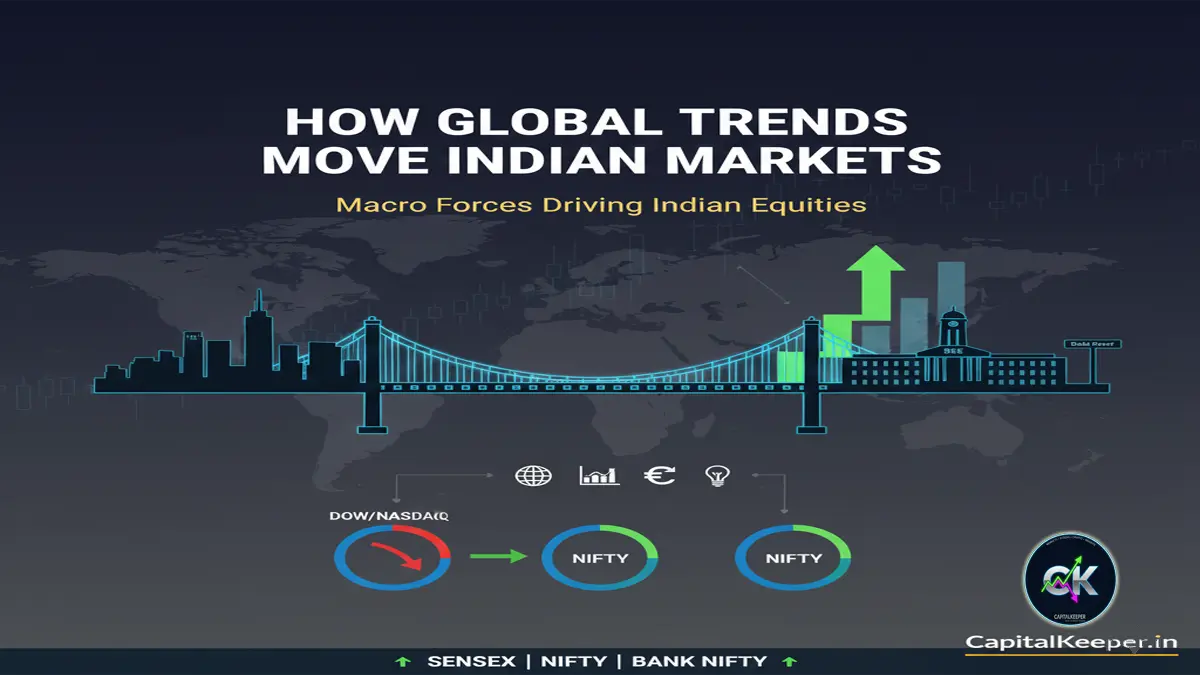





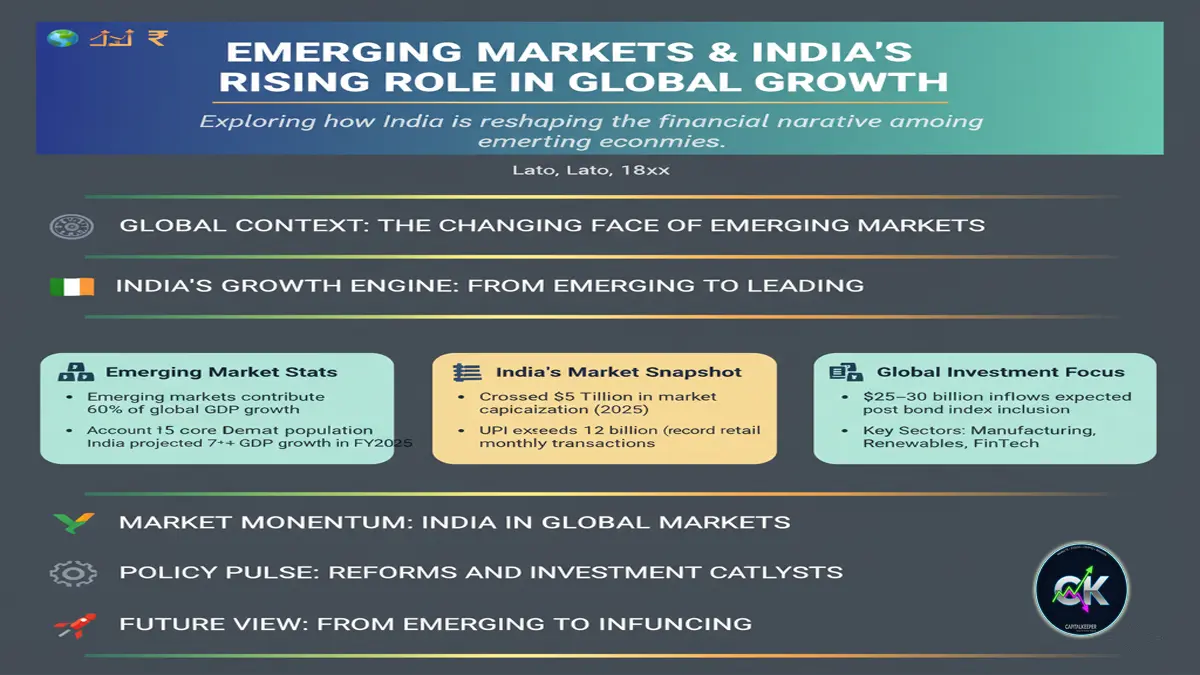

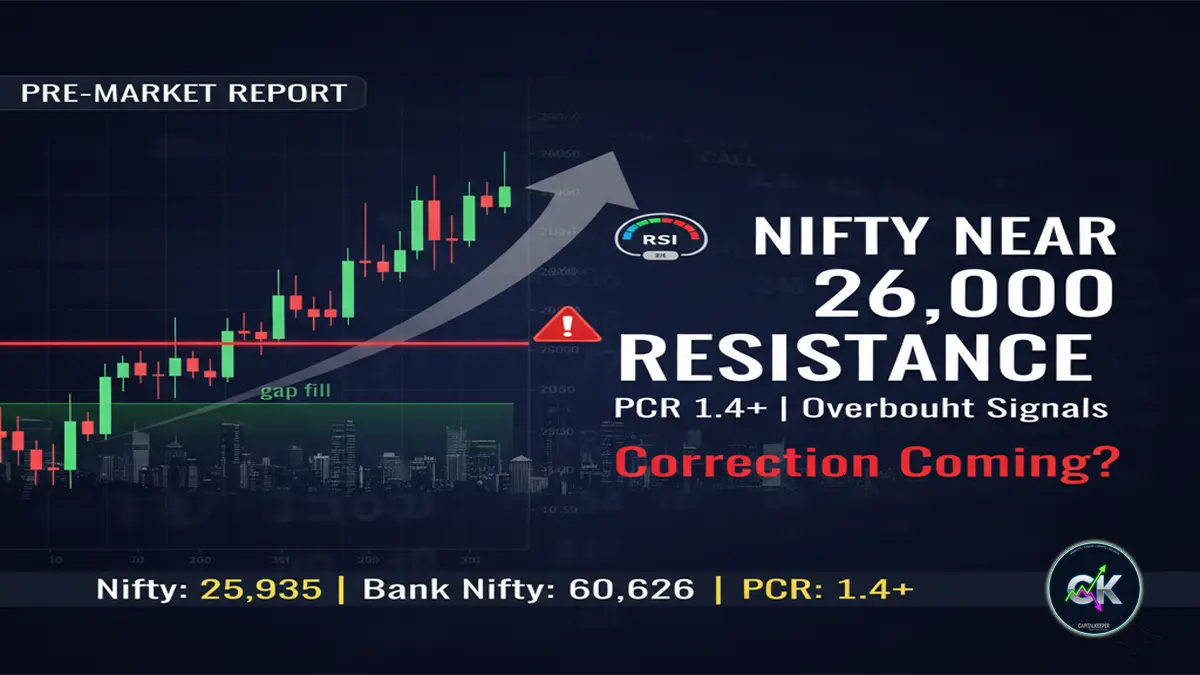
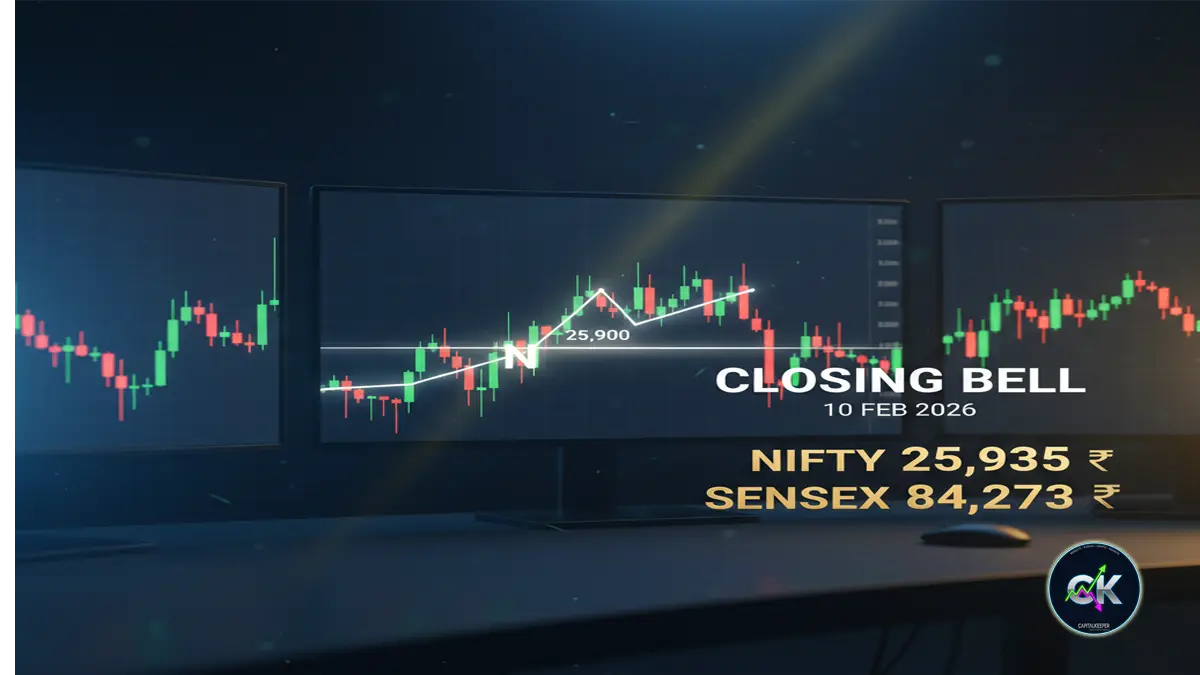
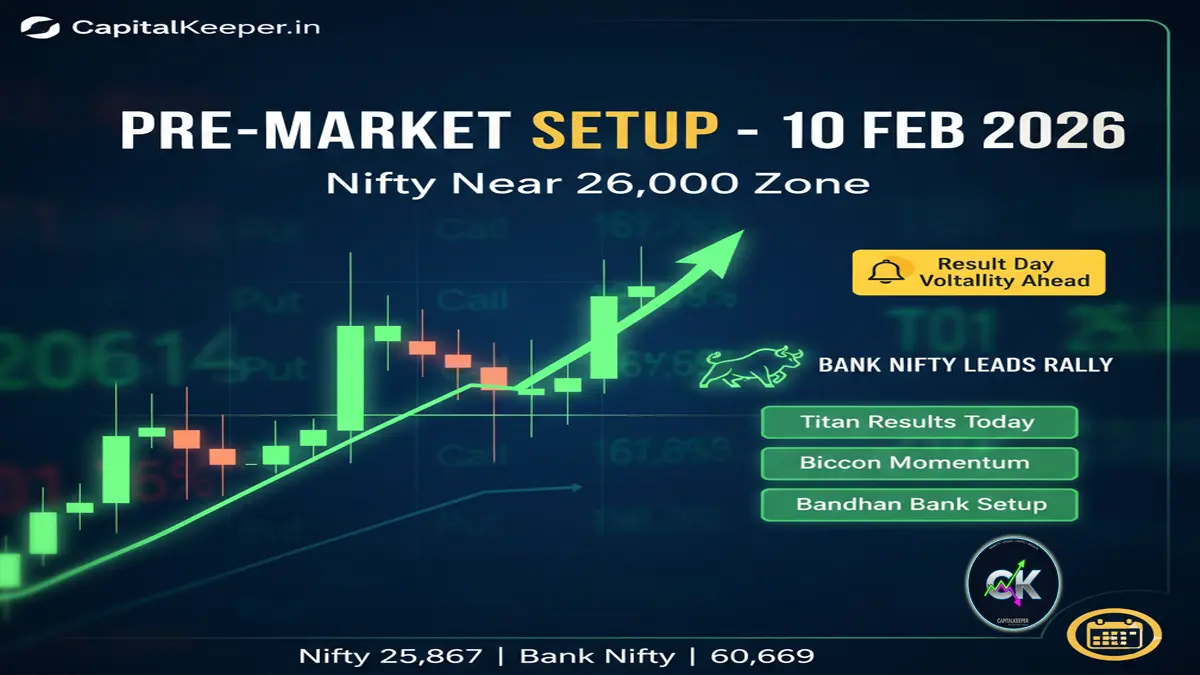

Leave a Reply